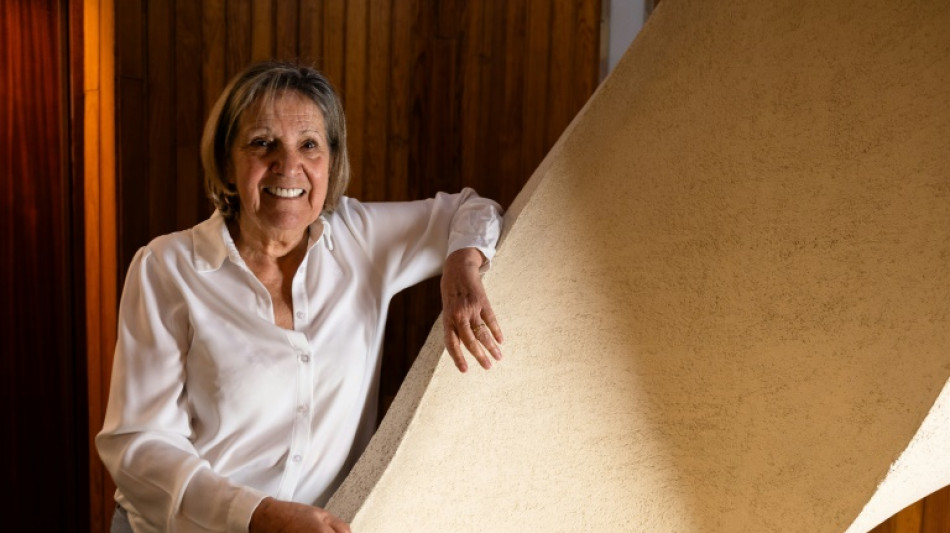
-
 Malawi's debt crisis deepens as aid cuts hurt
Malawi's debt crisis deepens as aid cuts hurt
-
Danish brewer adds AI 'colleagues' to human team

-
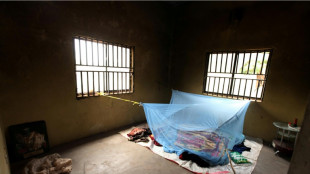 USAID cuts rip through African health care systems
USAID cuts rip through African health care systems
-
Arsenal target Champions League glory to save season

-
 Kane and Bayern need killer instinct with home final at stake
Kane and Bayern need killer instinct with home final at stake
-
Mbappe leading Real Madrid comeback charge against Arsenal

-
 S. Korea plans extra $4.9 bn help for chips amid US tariff anxiety
S. Korea plans extra $4.9 bn help for chips amid US tariff anxiety
-
Xi's Vietnam trip aiming to 'screw' US, says Trump
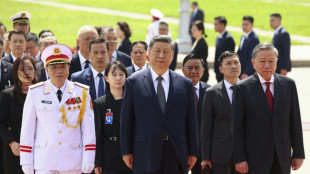
-
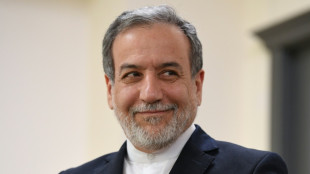 Iran's top diplomat to visit Russia after US nuclear talks
Iran's top diplomat to visit Russia after US nuclear talks
-
China accuses US spies of Asian Winter Games cyberattacks

-
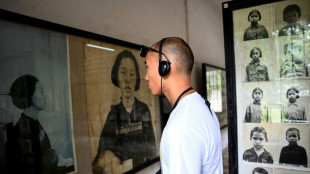 Cambodia genocide denial law open to abuse, say critics
Cambodia genocide denial law open to abuse, say critics
-
Holocaust remembrance and Gaza collide in Brussels schools
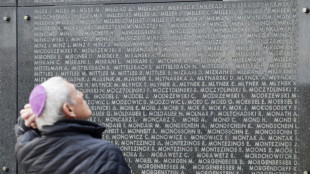
-
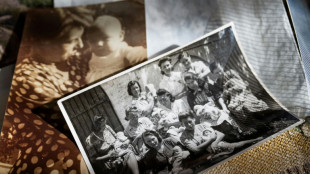 The miracle babies who survived Ravensbruck
The miracle babies who survived Ravensbruck
-
Asian stocks mixed as stability returns, autos lifted by exemption hope
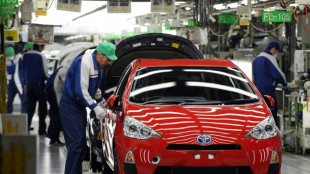
-
 Disarming Lebanon's Hezbollah no longer inconceivable: analysts
Disarming Lebanon's Hezbollah no longer inconceivable: analysts
-
London hosts talks to find 'pathway' to end Sudan war
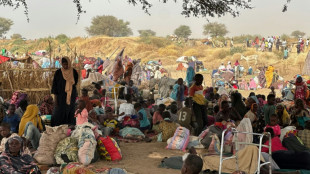
-
 Harvey Weinstein New York retrial for sex crimes to begin
Harvey Weinstein New York retrial for sex crimes to begin
-
Meta news ban intensifying Canadians' legacy media break

-
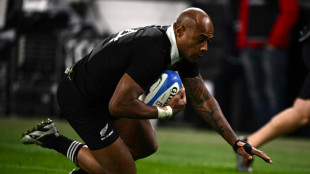 All Black wing Tele'a announces Japan switch
All Black wing Tele'a announces Japan switch
-
Chinese EV battery giant CATL posts 33% surge in Q1 profit

-
 US grounds helicopter company behind fatal New York tour
US grounds helicopter company behind fatal New York tour
-
China's economy likely grew 5.1% in Q1 on export surge: AFP poll

-
 S. Korea govt plans $4.9 bn more help for semiconductors as US tariff risk bites
S. Korea govt plans $4.9 bn more help for semiconductors as US tariff risk bites
-
Harvard sees $2.2 billion in funding frozen after defying Trump
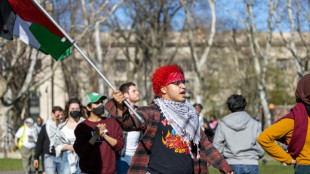
-
 Israel demands hostage release for Gaza ceasefire: Hamas
Israel demands hostage release for Gaza ceasefire: Hamas
-
Palestinian student detained at US citizenship interview

-
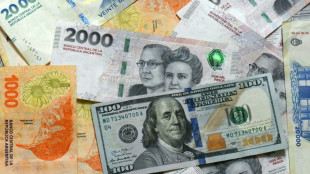 Argentina's peso sinks after currency controls eased
Argentina's peso sinks after currency controls eased
-
LVMH sales dip as Trump tariffs dent luxury tastes
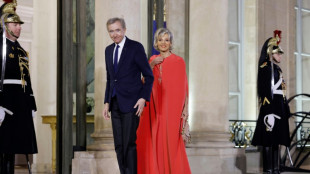
-
 Israeli demands hostage release for Gaza ceasefire: Hamas
Israeli demands hostage release for Gaza ceasefire: Hamas
-
Sean 'Diddy' Combs pleads not guilty to new sex charges

-
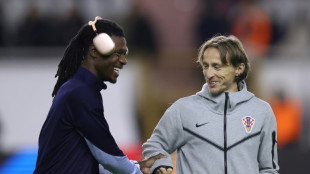 Luka Modric becomes co-owner of Championship club Swansea
Luka Modric becomes co-owner of Championship club Swansea
-
Peru mourns its literary giant Mario Vargas Llosa
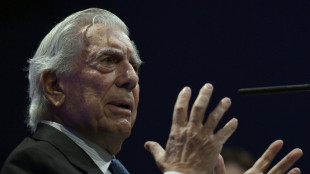
-
 Bournemouth beat Fulham to boost European hopes
Bournemouth beat Fulham to boost European hopes
-
Man charged over Tesla arson as anti-Musk wave sweeps US
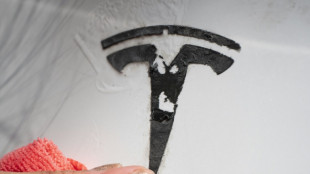
-
 US opens door to tariffs on pharma, semiconductors
US opens door to tariffs on pharma, semiconductors
-
Newcastle manager Howe diagnosed with pneumonia

-
 Alvarez bags penalty double as Atletico beat Valladolid
Alvarez bags penalty double as Atletico beat Valladolid
-
Judge to captain USA in World Baseball Classic

-
 Lukaku stars as Napoli keep pressure on Serie A leaders Inter
Lukaku stars as Napoli keep pressure on Serie A leaders Inter
-
Ukrainians mourn Sumy strike victims as Russia denies targeting civilians
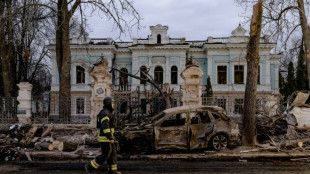
-
 Trump's tariff exemptions give markets relief, but uncertainty dominates
Trump's tariff exemptions give markets relief, but uncertainty dominates
-
Pope paves way for 'God's architect' Gaudi's sainthood

-
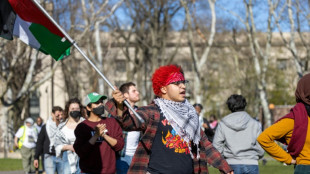 Harvard defies Trump demands for policy changes, risking funding
Harvard defies Trump demands for policy changes, risking funding
-
UN warns of Gaza humanitarian crisis as France, Abbas call for truce
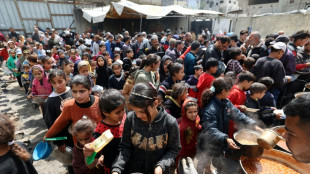
-
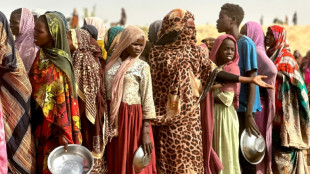 13 million displaced as Sudan war enters third year: UN
13 million displaced as Sudan war enters third year: UN
-
Dhoni snaps Chennai's five-match IPL losing streak

-
 Meta to train AI models on European users' public data
Meta to train AI models on European users' public data
-
Mexican president opposes ban on songs glorifying drug cartels
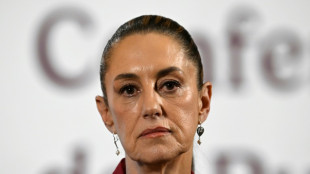
-
 Meta chief Zuckerberg testifies at landmark US antitrust trial
Meta chief Zuckerberg testifies at landmark US antitrust trial
-
Trump blames Zelensky for 'millions' of deaths in Russian invasion
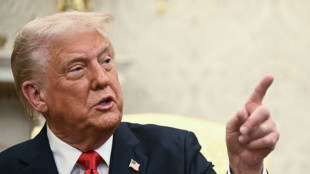

Erased identity: Post-war adoptee seeks German roots
Claudine Spire pointed to a group of toddlers in a black-and-white photo. "I thought I recognised myself," she said, indicating a girl with curly hair and a short coat. But it was not her.
As part of the 78-year-old Frenchwoman's relentless search for her roots, Spire found the photo a few days ago in the archives of the French ministry of foreign affairs.
"I felt as a child that I didn't quite belong," she said. "I didn't look like anyone in the family."
Spire is among the post-war children from the French-occupied part of Germany who had German mothers and French soldiers as fathers.
About 1,500 of them were brought to France, presumably illegally, by French authorities between 1946 and 1951 and handed over to adoptive families.
"The French authorities actively sought these children and pressured the mothers to give them up," said Yves Denechere, a historian at the University of Angers. "This was about replenishing the population after the war."
German women expecting a child from a Frenchman were required to report this to the occupying authorities. While still in the maternity ward, many were visited by "research officers" who urged them to part with the child, claiming that their son or daughter would have a better future in France.
The officers brought a form, ready for the mothers to sign: "For personal reasons, I hand over my child to the French authorities," it said. The mothers waived all rights to the child, and stated that they did so willingly.
Claudine Spire's mother, who became pregnant at 19, was pressured by her parents to give up the "child of the enemy".
Claudine was placed in a French children's home in Nordrach in the Black Forest when she was barely one and a half.
The French occupying authorities had set up the home in a former "Lebensborn" institution that had been run by the Nazis to promote the Aryan race.
In selecting children for adoption, the French postwar authorities used racial selection criteria that were eerily similar to those applied by the Third Reich.
"The children sent to France were mainly white, with blond hair, and in good health," said Denechere.
- 'Absolutely disgusting' -
Since about half of the French soldiers stationed in Germany were from North or sub-Saharan Africa, many children did not match the criteria and were either returned to their mothers or placed in German children's homes.
"I was on the list of children who were not to be proposed for adoption," said Spire, whose father came from Morocco.
But adoptive parents were found for her regardless, and she grew up in a loving family.
Only in her early 50s did she feel compelled to search for her roots.
"I knew that I was adopted, but I didn't know the circumstances," she said.
The more she learnt about the past, the more she was shocked.
"It's absolutely disgusting what the French state did back then," Spire said, also condemning postwar Germany for allowing the adoptions to happen.
Spire eventually found her German mother. Their first meeting took place in the entrance hall of a hospital in Offenburg in southwest Germany, just across the border from Strasbourg.
"It was very strange. She hadn't told her husband and daughter anything about me," Spire remembered.
Her mother addressed her as Margarete, her birth name that was changed upon adoption.
"Our origins were erased," Spire states.
These adoptions took place in a legal vacuum, as Germany, having no government, was divided into zones occupied by various Allied countries.
"Those were irregular, illegitimate practices," said Denechere.
Yet been no legal challenges have been brought, the historian added.
"Against whom? And for what exactly?", he said.
In addition such cases would presumably be covered by statutes of limitations by now.
"This part of history is completely unknown to the public," he said.
This is gradually changing thanks in part to a 2022 documentary on the topic and a recent novel by author Anke Feuchter telling the story of a woman in a similar situation as Spire's mother.
With criticism of the practice mounting, many adopted children of the occupation are still looking for their German roots.
Their search, it turns out, has been facilitated by the French authorities' decision to repatriate all documents related to the adoptions in a bid to remove traces of the practices.
Today, those very documents have allowed historians and interested parties to shed light on a dark chapter of German-French post-war history.
This is how Claudine Spire found photos of children in Nordrach who, like her, were adopted.
But she has yet to find any pictures of herself from back then.
D.Bachmann--VB
